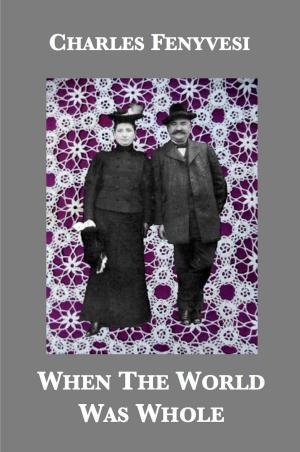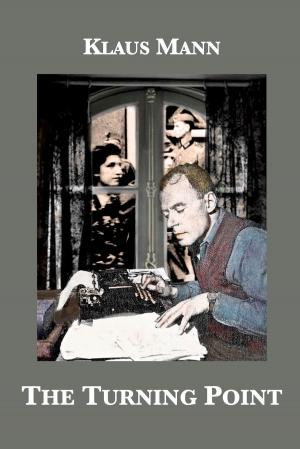Joseph Fouché: Portrait of a Politician
Nonfiction, History, France, Biography & Memoir, Political, Historical| Author: | Stefan Zweig | ISBN: | 1230000036983 |
| Publisher: | Plunkett Lake Press | Publication: | December 6, 2012 |
| Imprint: | Language: | English |
| Author: | Stefan Zweig |
| ISBN: | 1230000036983 |
| Publisher: | Plunkett Lake Press |
| Publication: | December 6, 2012 |
| Imprint: | |
| Language: | English |
Joseph Fouché: Portrait of a Politician by Stefan Zweig (translated from the German by Eden and Cedar Paul, with a chronology of Stefan Zweig's life and a bibliography of works by and about Stefan Zweig in English by Randolph Klawiter; 89,000 words and three illustrations)
This Plunkett Lake Press eBook is produced by arrangement with Viking, an imprint of Penguin Publishing Group, a division of Penguin Random House LLC.
This biography of the man Stefan Zweig viewed as "the most perfect Machiavelli of modern times" was written in 1929, before the full impact of Nazism and Stalinism was understood. In this gripping case study of ruthlessness, political opportunism, intrigue, and betrayal, Zweig portrays Minister of Police Joseph Fouché (1759-1820), a "thoroughly amoral personality" whose only goal was political survival and the exercise of power.
Zweig traces Fouché's career, beginning with his stint as a math and physics teacher in provincial Catholic schools and evolving into a moderate and then radical legislator. Fouché cultivated every political movement du jour, holding no convictions of his own. After preaching clemency for Louis XVI, Fouché voted to send the King to the guillotine. After writing "the first communist manifesto of modern times" he became a multi-millionaire. He led the brutal repression of an anti-revolutionary movement, earning him the nickname "le mitrailleur (butcher) de Lyon". After serving Robespierre, Fouché engineered his overthrow and rose to Minister of Police under the Directory, which he then helped to overthrow before putting his network of informants in Napoleon’s service as his Minister of Police. After turning against the Emperor, Fouché served the new King Louis XVIII – whose brother he had helped send to the guillotine. Thus, Fouché served the Revolution, the Directory, the First Empire and the Restoration.
Joseph Fouché: Portrait of a Politician by Stefan Zweig (translated from the German by Eden and Cedar Paul, with a chronology of Stefan Zweig's life and a bibliography of works by and about Stefan Zweig in English by Randolph Klawiter; 89,000 words and three illustrations)
This Plunkett Lake Press eBook is produced by arrangement with Viking, an imprint of Penguin Publishing Group, a division of Penguin Random House LLC.
This biography of the man Stefan Zweig viewed as "the most perfect Machiavelli of modern times" was written in 1929, before the full impact of Nazism and Stalinism was understood. In this gripping case study of ruthlessness, political opportunism, intrigue, and betrayal, Zweig portrays Minister of Police Joseph Fouché (1759-1820), a "thoroughly amoral personality" whose only goal was political survival and the exercise of power.
Zweig traces Fouché's career, beginning with his stint as a math and physics teacher in provincial Catholic schools and evolving into a moderate and then radical legislator. Fouché cultivated every political movement du jour, holding no convictions of his own. After preaching clemency for Louis XVI, Fouché voted to send the King to the guillotine. After writing "the first communist manifesto of modern times" he became a multi-millionaire. He led the brutal repression of an anti-revolutionary movement, earning him the nickname "le mitrailleur (butcher) de Lyon". After serving Robespierre, Fouché engineered his overthrow and rose to Minister of Police under the Directory, which he then helped to overthrow before putting his network of informants in Napoleon’s service as his Minister of Police. After turning against the Emperor, Fouché served the new King Louis XVIII – whose brother he had helped send to the guillotine. Thus, Fouché served the Revolution, the Directory, the First Empire and the Restoration.















